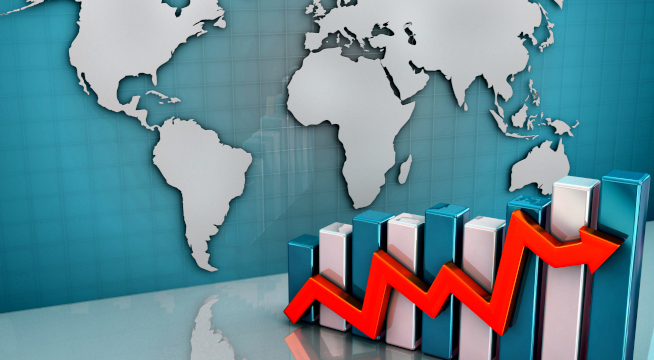In Deloitte Access Economics’ 177-page Business Outlook report, the economic advisory practice’s analysts look at how the markets have, and will, fare over 2020, outlining that while it has been a “rotten year” for global growth, the economies of Asia Pacific (and particularly Australia) will shrink the least.
The report outlines that the year so far has claimed 300 million jobs and millions of small businesses, and seen more than 1.6 billion people in the “informal economy” affected – and paints a picture of the world environment as well as prospects across 22 industries and each of the Australian states and territories.
The report aims to help decision makers “enhance” their strategic planning capacity by providing figures and forecasts on Australian and world growth prospects, interest rates and exchange rates, wages and prices, exports and imports, jobs and unemployment, taxes and public sector spending.
Deloitte put forward several assumptions of how Australia could fare moving forward, outlining that should Australia succeed in keeping virus numbers mostly suppressed (and allowing restrictions to continue to be lifted – including international travel by the end of next year), and if a vaccine or good antivirals are available from mid-2021, then there is reason to hope that the economy could be relatively well off compared with the rest of the globe.
The report suggests that Australia’s relative success in the virus fight thus far gives it more room to open up, adding that the policies put in place have “successfully protected many jobs and businesses that would otherwise have been lost”.
“Many key trading partners have also fought the virus well,” it reads. “And it looks like being a corker of a year for farmers, too. So, the recession may well have already past its worst,” the authors write.
However, Deloitte Access Economics adds that families are struggling with the “toxic trio” of high debt, high unemployment and low confidence, meaning that 2020 is still looking to be “a shocker of a year”, with unemployment levels “badly swollen for a while”.
According to the report authors, the Australian economy is being “held together by lots of sticky tape” – such as JobKeeper and JobSeeker payments. However, it adds that this is “truly great news” as the range of policies that have swung into action have helped cushion living standards and forestall any drastic increase in unemployment levels.
“Australia’s ability to do that was made easier, both economically and politically, by our relatively strong position: the federal budget was balanced and debt was low when the crisis hit. That’s been marvellous,” the report reads.
The analysts continue that other positives include being able to roll out payment initiatives faster than during the global financial crisis, the early lockdowns and curbing of contagion helped reduced the cost of energy measure, and “the fall in interest rates is so big, there’s little change in expected federal interest costs”.
However, Deloitte warns that there are still several “phantom menaces”, such as the belief that Australia will need to pay off new debts quickly. It argued that this is “not the smart play for war-time debt anyway”, outlining that instead “the smart play is that we get the economy growing so that debt gradually shrinks relative to our economy”.
Another phantom menace, it argued, is the belief that even if federal debts aren’t paid off, the government will need to raise taxes and cut spending to fix the budget.
“That’s completely wrong, and it unnecessarily scares the punters. The emergency measures are temporary. So, as Treasury notes, if we can repair the economy, then we’ll repair the budget. Or as the PM puts it, ‘the best way to raise revenue is to get people back into jobs and the economy moving again’,” it states.
“Every taxpayer dollar is precious. But every taxpayer dollar is also helping Australians more effectively than it has ever done,” it continues.
“Our fight against the virus cost 835,000 people their jobs and many thousands of small-business people a lifetime of work. That risks leaving generational damage. We owe it to them to get livelihoods back as fast as we can.”
In conclusion, the report outlines that while the “best and fastest way to repair the economy is to keep the virus at bay so that we can rapidly open up”, it suggests that “more dollars are needed”.
“How much more depends on our success against the virus and in opening up. But the recession is changing shape fast, so the nature, timing and dollars of support needs to change fast.
“Some new types of spending will be needed, building on the recent infrastructure and HomeBuilder packages.
“We also need to smooth transition timing and dollars: too much support ends at the same time. In some cases, that may mean an earlier end, but in most cases it’ll be later. And we should phase support out where we can.”
Despite this, the analysts argue that some type of ongoing wage subsidy, which they dubbed a “JobTweaker” will be needed, too – limited to a rather smaller range of businesses (such as those tied to international borders).
“But wage subsidies gradually become less helpful the longer they’re used as emergency support. There are rising costs in simply keeping zombie jobs alive. That doesn’t say pull back overall spending support, but it does say this particular type of support should gradually fade in importance in our defence against the virus,” the report concludes.
“The complexity of exiting from this emergency is high. And things keep changing fast. So, over and above existing reasons to have higher unemployment benefits anyway, keeping JobSeeker stronger for longer will be vital in filling the cracks as emergency safety nets morph or disappear. We’re all in this together.”
[Related: More housing stimulus on the way: Morgan Stanley]
